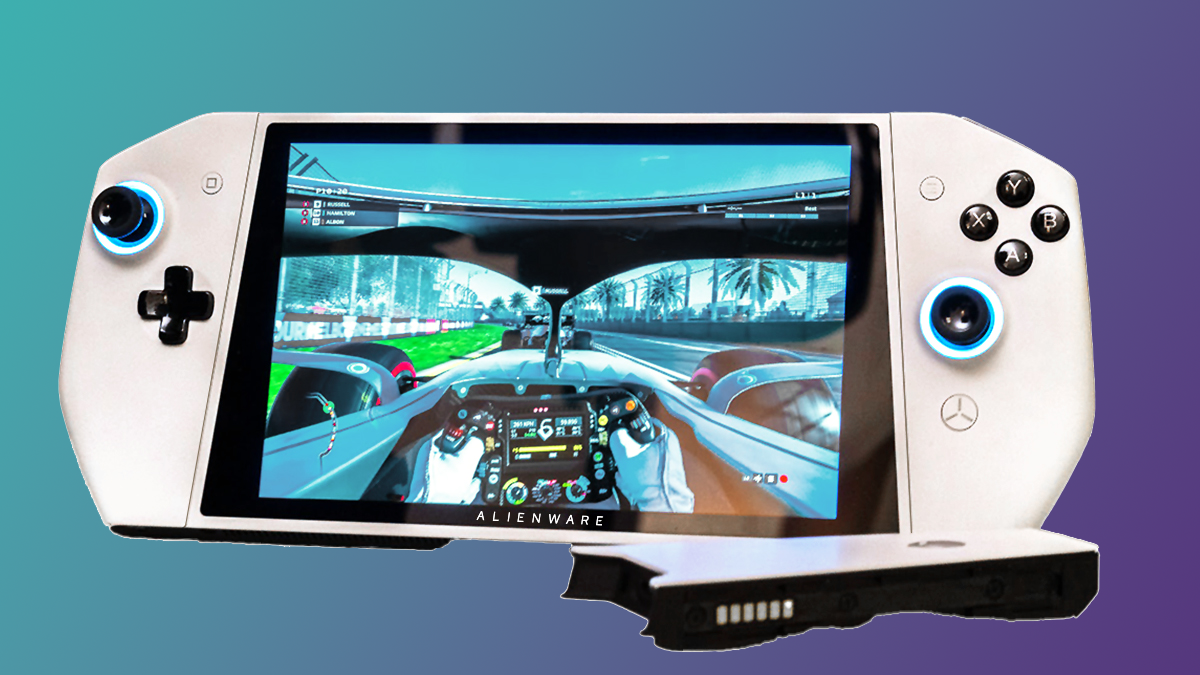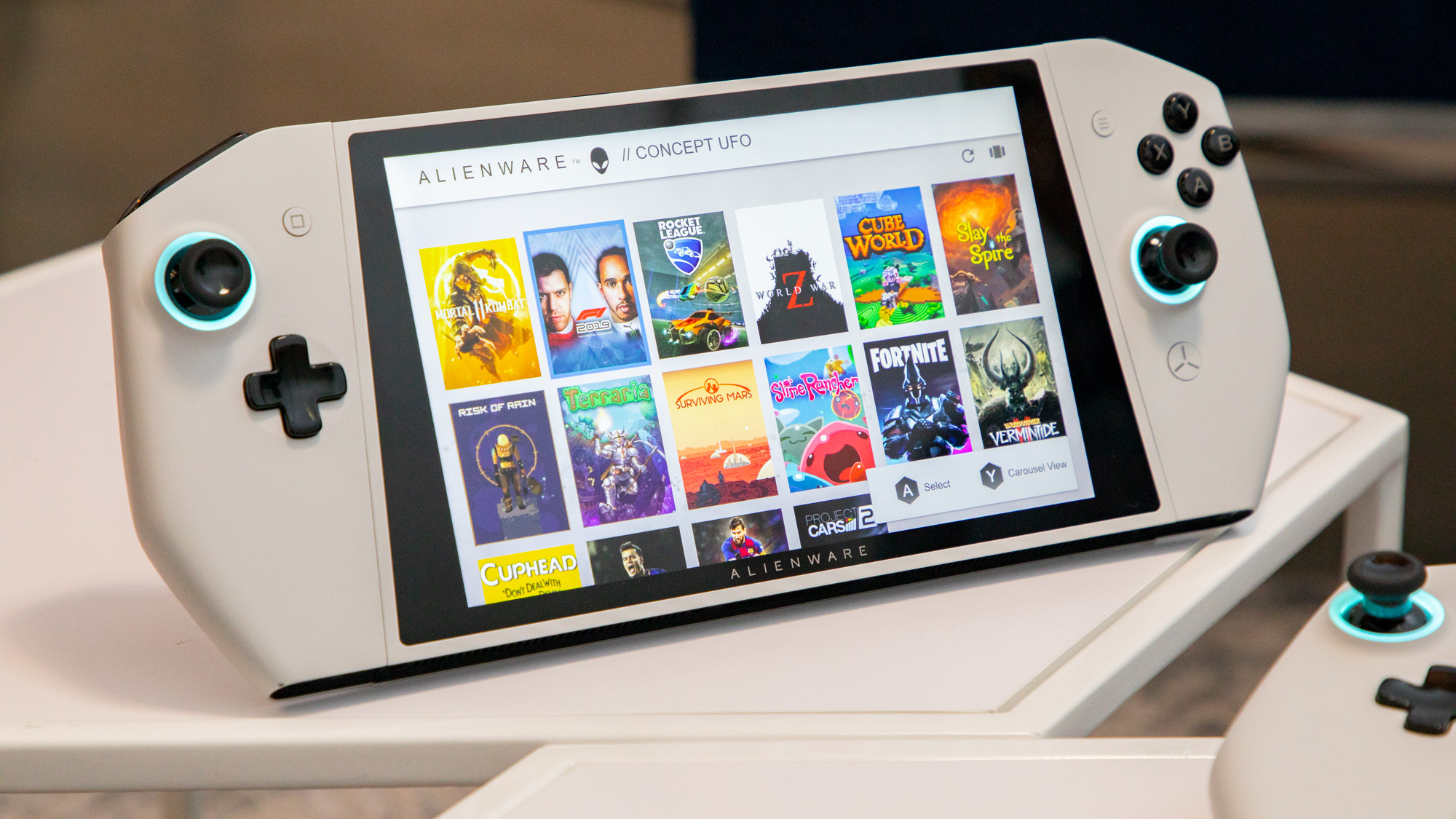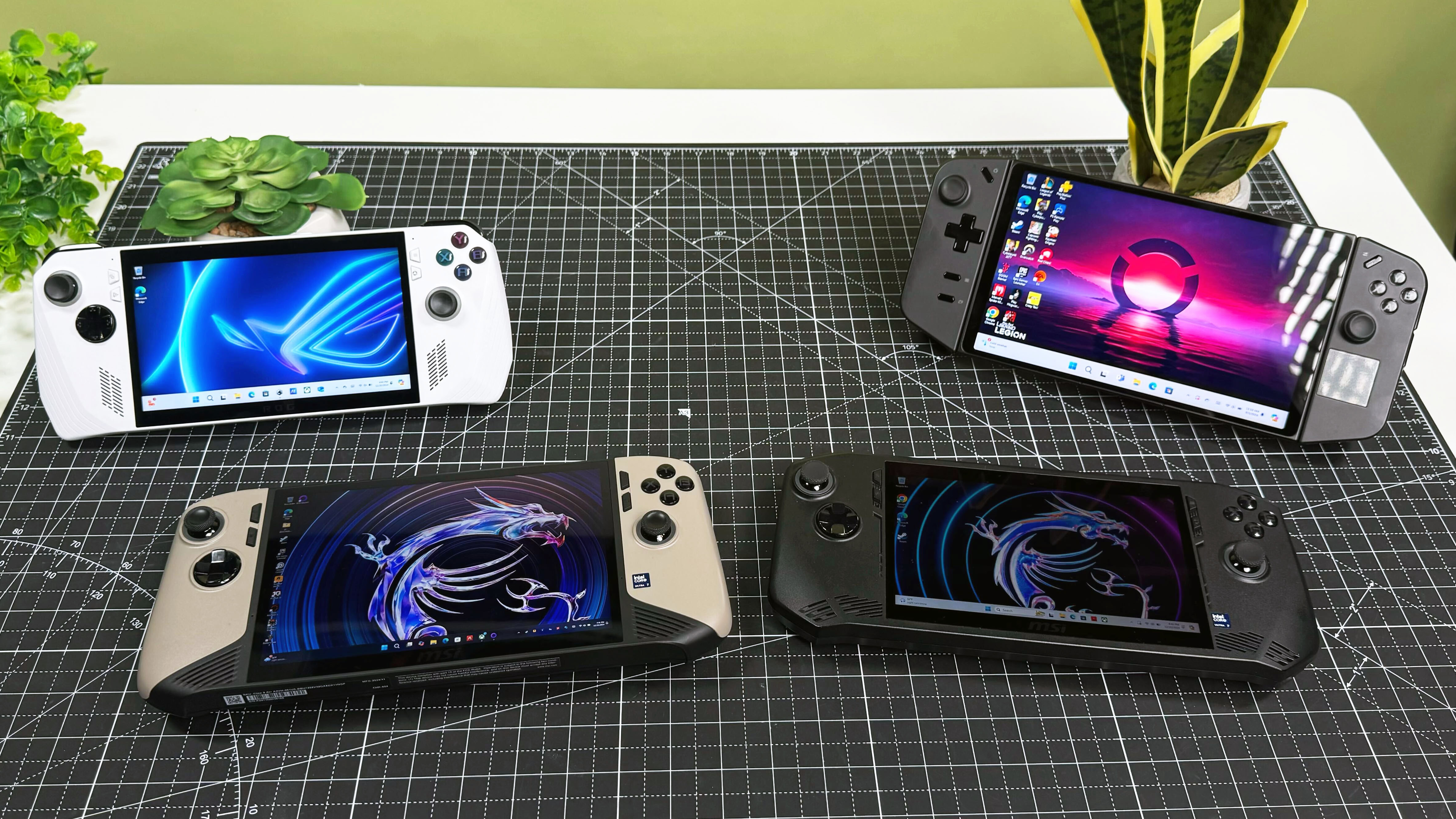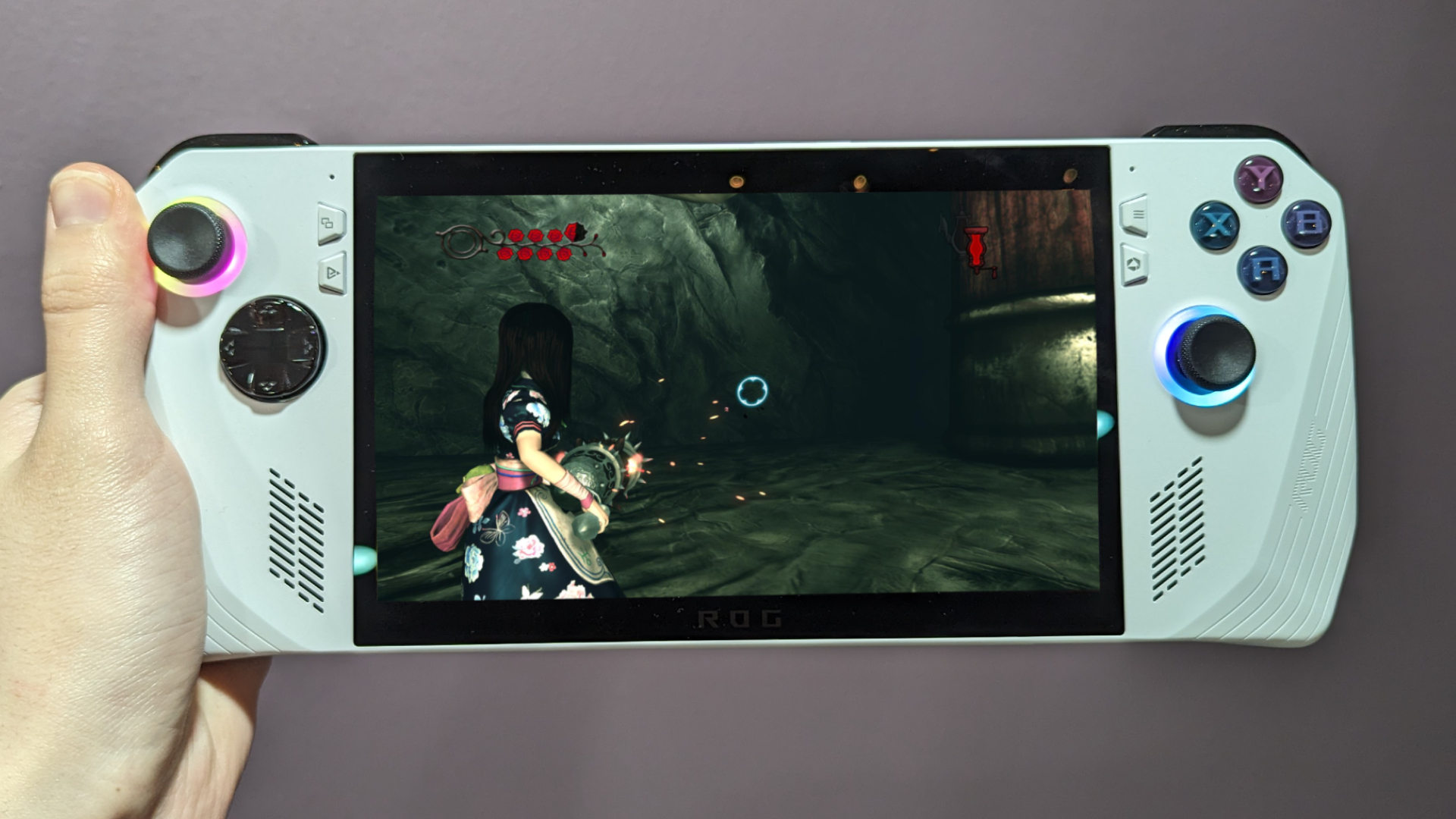
Alienware made many exciting announcements last week at CES 2025, including the return of the Area-51 desktop and laptop, but the company has yet to release a concept it debuted more than five years ago.
Many Alienware competitors — Acer and Lenovo, among them — unveiled new gaming handhelds at CES, so it seems surprising that Alienware, one of the best-known gaming manufacturers, hasn't released anything.
"We don't have any plans to announce Concept UFO as a formal product right now."
Phillip Tracy of Alienware
Just last week, Laptop Mag observed how Alienware has been strangely silent on the matter, specifically highlighting that the Alienware UFO concept from CES 2020 has yet to resurface in all of these years, even though it was ahead of its time.
Laptop Mag contacted Alienware to comment on whether the device was in the works.
Phillip Tracy, reviews advisor for Alienware, puts it this way to Laptop Mag:
"We don't have any plans to announce Concept UFO as a formal product right now."
While this isn't much of a surprise, it's sure to be bad news for gamers who wanted to see wanted that Alienware feel in a handheld gaming device.
The company seemingly has no interest in handheld gaming — or at least in announcing anything — as of now, but what's the reason?
Why doesn't Alienware want a gaming handheld yet?
The Alienware UFO was ahead of its time, unveiled three years and five months before the first significant Windows gaming handheld to launch, which is none other than the Asus ROG Ally.
We're always pushing what's possible in the realm of gaming. Introducing our newest gaming innovation, #ConceptUFO. Watch the official unveiling on Jan. 7 at 10 a.m. PST. #CES2020 https://t.co/lNV4TM1eXe pic.twitter.com/6TwCI9nfc1January 6, 2020
Since then, we've seen plenty of similar devices in less than two years, like the Lenovo Legion Go, MSI Claw, Zotac Zone, Acer Nitro Blaze, and Adata XPG Nia.

Tracy tells Laptop Mag, "Our focus is on the best gaming experience, evident by our announcement at CES where we unveiled the return of the iconic Area-51, in both desktop and laptop form factor.”
During a pre-CES briefing in New York last month, General Manager of Alienware, Matt McGowan, told reporters that "there are deficiencies [in that category.]" He highlights the need for better battery life and graphics: "When that inflection point comes, we want to be there."
McGowan's claim that gaming handhelds have "deficiencies" at this moment makes it seem that Alienware does not see the category as being among the "best gaming experiences" at this moment.
However, when analyzing the recent developments in the handheld gaming market, Alienware's apparent stance is surprising.
Handheld gaming PCs are more than ready for Alienware's involvement
Alienware claims it's waiting for better battery life and performance. As for the former, handheld longevity has already improved quickly, to the point where these devices are outmatching their predecessors significantly.
For example, on the Laptop Mag battery life test, which involves continuous web surfing over wifi at 150 nits, the MSI Claw 8 AI Plus lasted 13 hours and 31 minutes before running out of juice. The original MSI Claw (A1M), which launched less than a year prior, lasted 6 hours and 9 minutes on the same test.

Even when moving to PCMark 10 tests, which simulates actual gaming as closely as possible, the MSI Claw 8 AI Plus survived 3 hours and 6 minutes, whereas the MSI Claw (A1M) died in an hour and 22 minutes. This is thanks to the upgrade from a 53Whr battery to an 80Whr battery, alongside whole new levels of power efficiency found with the Intel Ultra 200 chips.
Moving over to AMD, the Asus ROG Ally and Asus ROG Ally X, both of which are powered by a Ryzen Z1 Extreme, boast significantly different longevity thanks to an upgraded battery size. On the Laptop Mag battery life test, the Asus ROG Ally lasted 5 hours and 51 minutes with its 40Whr battery, while the Asus ROG Ally X managed 8 hours and 19 minutes with its 40Whr battery. On the PCMark 10 battery life test, the Asus ROG Ally (1:46) again stood no chance against the Ally X (3:04).
With the push for larger batteries, gaming handhelds are reaching impressive longevity, but it seems like it's not enough to satisfy Alienware's expectations for the hardware.
Handheld power and battery life isn't the problem, Windows 11 is
What Alienware should be concerned about is Windows itself. Not having enough power or longevity are far from the most frequent criticisms of gaming handheld PCs at the moment, as many of the issues gamers have lie with Windows 11 not being optimized for gamepad usage, create a janky, inconsistent user experience.

This is part of why SteamOS is so appealing, and companies like Lenovo are developing devices powered by it, like the Lenovo Legion Go S. However, this is still making a sacrifice, as while SteamOS is a less demanding operating system with a more user-friendly design, it has nowhere near the flexibility that Windows 11 does.
Playing the games I own through Xbox Game Pass on my Asus ROG Ally is necessary for these devices. I will always prefer the adaptability of Windows 11 over the ease of use on SteamOS. Still, it doesn't change that Microsoft should work on making its operating system less frustrating to use on a gamepad.
Ultimately, Alienware will make a handheld when the company is ready to do so. In the meantime, we have plenty of other devices from competing companies to look forward to, so we won't be short on exciting handhelds to play with.







